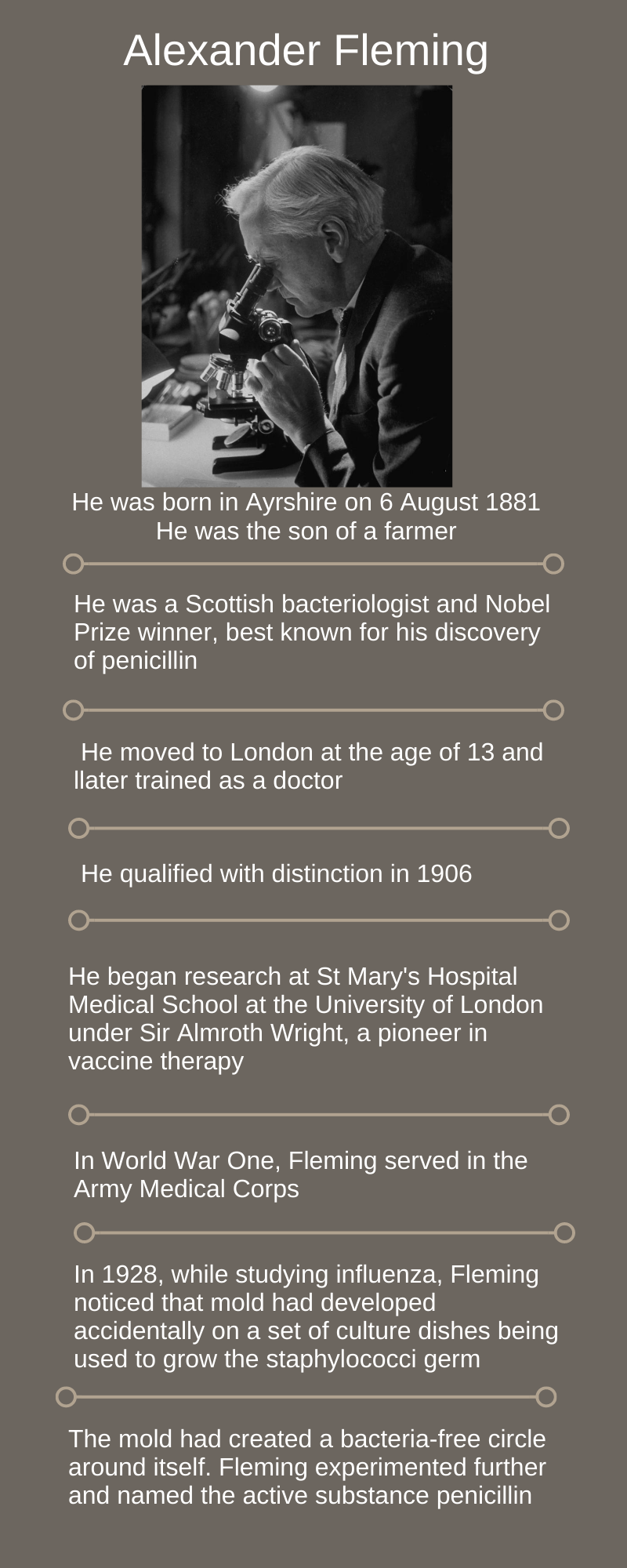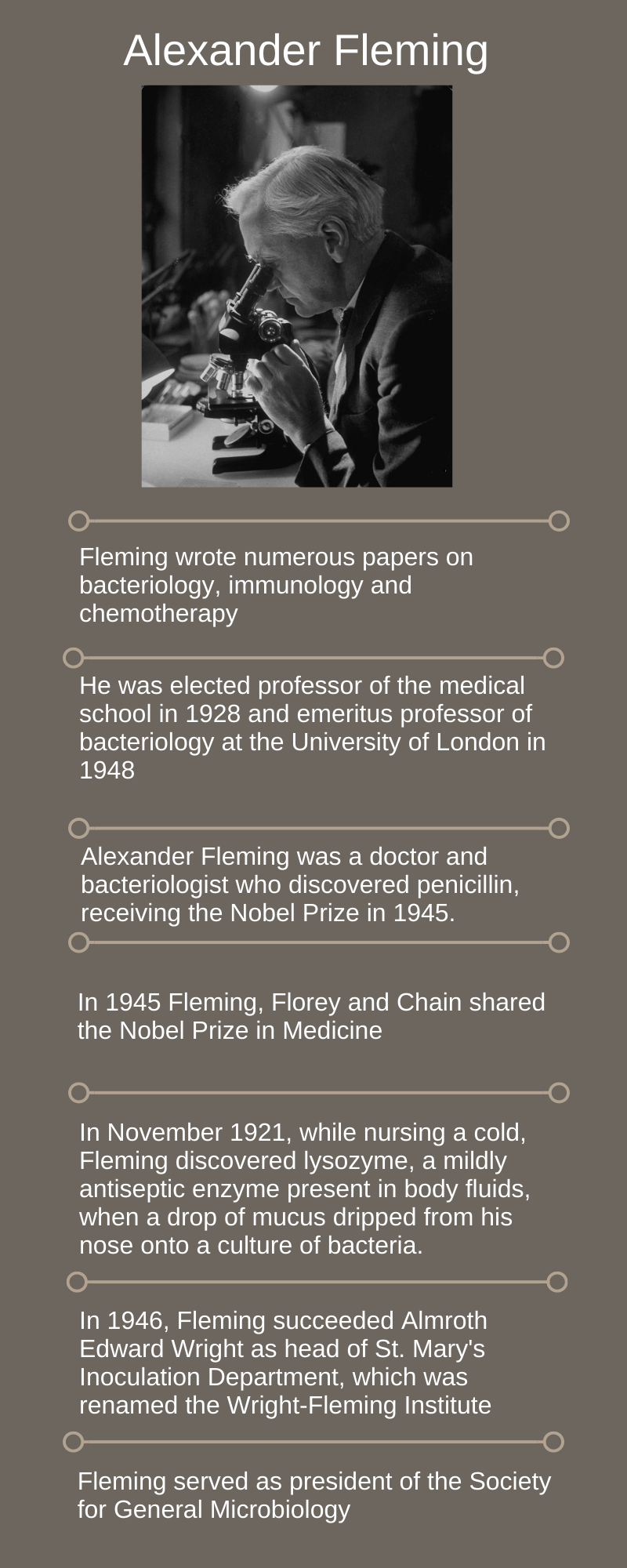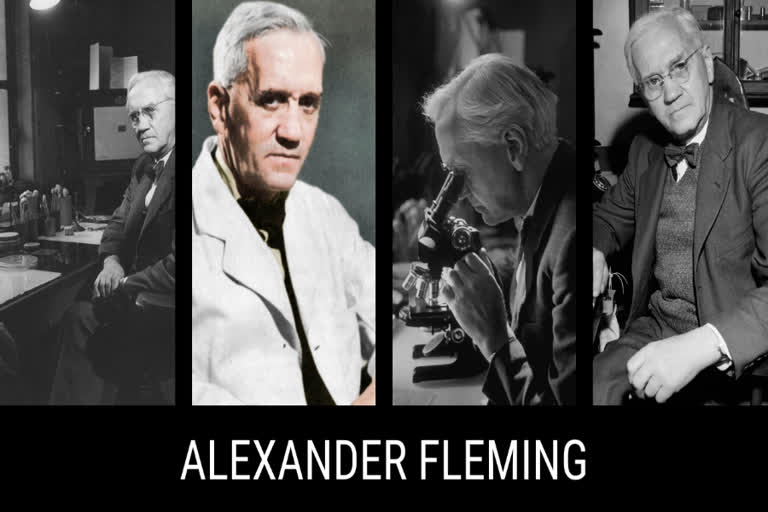Hyderabad: Alexander Fleming was born in rural Lochfield, in East Ayrshire, Scotland, on August 6, 1881. His parents, Hugh and Grace were farmers, and Alexander was one of their four children. He also had four half-siblings who were the surviving children from his father Hugh's first marriage. He attended the Louden Moor School, the Darvel School, and Kilmarnock Academy before moving to London in 1895, where he lived with his older brother, Thomas Fleming. In London, Fleming finished his basic education at the Regent Street Polytechnic (now the University of Westminster).
Also Read: Early Mars was covered in ice sheets, not flowing rivers
Fleming was a member of the Territorial Army and served from 1900 to 1914 in the London Scottish Regiment. He entered the medical field in 1901, studying at St. Mary's Hospital Medical School at the University of London. While at St. Mary's, he won the 1908 gold medal as the top medical student


The Road to Penicillin
In September 1928, Fleming returned to his laboratory after a month away with his family and noticed that a culture of Staphylococcus aureus he had left out had become contaminated with a mold (later identified as Penicillium notatum). He also discovered that the colonies of staphylococci surrounding this mold had been destroyed.
He later said of the incident, "When I woke up just after dawn on September 28, 1928, I certainly didn't plan to revolutionize all medicine by discovering the world's first antibiotic, or bacteria killer. But I suppose that was exactly what I did." He at first called the substance "mold juice," and then named it "penicillin," after the mold that produced it.
Thinking he had found an enzyme more powerful than lysozyme, Fleming decided to investigate further. What he found out, though, was that it was not an enzyme at all, but an antibiotic -- one of the first antibiotics to be discovered. Further development of the substance was not a one-man operation, as his previous efforts had been, so Fleming recruited two young researchers. The three men unfortunately failed to stabilize and purify penicillin, but Fleming pointed out that penicillin had clinical potential, both in topical and injectable forms, if it could be developed properly.
On the heels of Fleming's discovery, a team of scientists from the University of Oxford — led by Howard Florey and his co-worker, Ernst Chain — isolated and purified penicillin. The antibiotic eventually came into use during World War II, revolutionizing battlefield medicine and, on a much broader scale, the field of infection control.
Also Read: Features and specifications of LAVA Z66, a new budget smartphone by LAVA #ZoomintoTheNewWorld
Florey, Chain and Fleming shared the 1945 Nobel Prize in Physiology or Medicine, but their relationship was tainted over who should receive the most credit for penicillin. The press tended to emphasize Fleming's role due to the compelling back-story of his chance discovery and his greater willingness to be interviewed.
Outside of the scientific community, Fleming was named rector of Edinburgh University from 1951 to 1954, freeman of many municipalities, and Honorary Chief Doy-gei-tau of the American Indian Kiowa tribe. He was also awarded honorary doctorate degrees from nearly 30 European and American universities.
Fleming died of a heart attack on March 11, 1955, at his home in London, England. He was survived by his second wife, Dr. Amalia Koutsouri-Vourekas, and his only child, Robert, from his first marriage.
Also Read:WhatsApp new feature, 'Search the Web'



